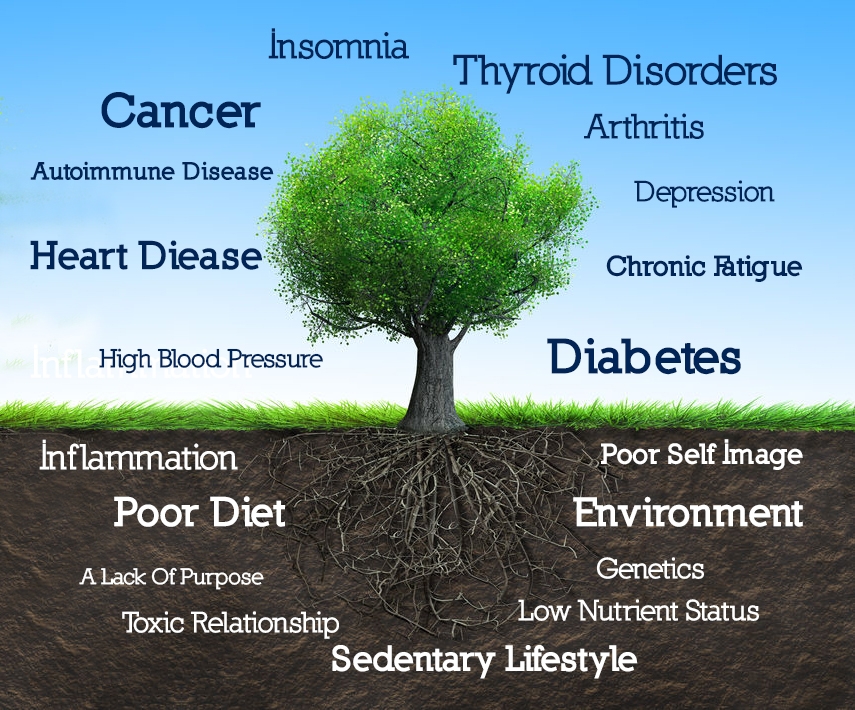What Is Integrative Medicine?
Integrative medicine and integrative health doctors, specialize in personalized care that recognizes the interactions between genetic, internal and external (environmental) factors.
Standard healthcare has become so compartmentalized, there is now a specialist for every part of your body.
While this specialized knowledge about specific areas in the body is very useful – for example you’d see a cardiologist for a heart condition or a gastroenterologist for a digestive disorder – yet many times, symptoms can point to larger systemic issues.
Oftentimes, patients have severe brain-gut inflammation, an autoimmune disorder that has gone undiagnosed, or unbalanced hormone levels that are throwing various organs off-balance – so “medicating” one organ is not the answer.
That’s why it may be worthwhile to get a different perspective and try an integrative medicine approach first, focusing on the root cause of what is ailing you.
What Is Integrative Medicine?
Historically, mainstream medicine has focused on treating the symptoms that a patient presents, rather than treating the unique individual, as a whole person.
While this is sometimes a successful mode of treatment, for example, in cases of emergencies, it is often more of a “band-aid” solution that doesn’t get to the root of the actual problem.
The body is a complex, interwoven structure of different systems that work symbiotically. Integrative medicine focuses on the various factors affecting how these systems work together in each person, taking an individualized approach to their treatment plan.
It recognizes that what is right for one patient with a certain health history and set of lifestyle factors may not be right for another.
The success of integrative medicine is dependent on an open relationship between patients and their healthcare providers. In order to treat a patient to the best of their ability, a healthcare professional must know everything they can about the patient’s health history – not just their current symptoms… including past medical issues, current lifestyle and stress levels, and one of the most important factors, diet.

Blended Integrative Medicine Approach
What both integrative medicine and functional medicine have in common is that they treat the whole person, not just the symptoms of disease.
Neither approach rejects conventional treatment approaches but instead seeks to balance natural and conventional therapies, allowing for sufficient time with patients to develop treatment plans in partnership between practitioner and the patient.
Integrative and functional medicine have been especially useful for chronic diseases or where you don’t have a clear diagnosis.
Ultimately, we believe that the type of doctor you choose has to suit your philosophy, health goals and lifestyle. For us, having an open mind and being willing to consider all available treatment modalities is paramount to restore full function as quickly as possible.
What Can I Expect From An Integrative Doctor?
The first thing you’ll notice is how long you’re in the office actually meeting with your doctor, to properly cover health history and gather more information for a deeper picture of your current state of health. During the intake consultation at the Central Coast Center For Integrative Health, we typically spend 60-90 minutes discussing your medical history, diet, and what medications and supplements you’re taking.
We also take a deep-dive on lifestyle-related questions, your eating and sleep habits, what toxins may be present in your environment, as well as how connected you are to family, friends, and your community – because this information will help us understand your situation more holistically.
Take The First Step Today On Your Journey Back To Health
Our patient care coordinators are happy to take your call and get you scheduled to see if our office is right for you.
